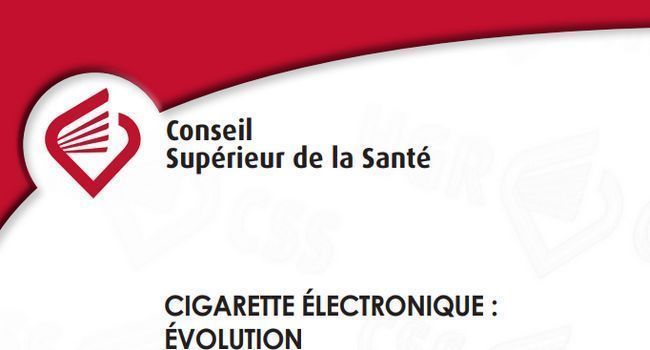Belgium: the Superior Health Council recommends electronic cigarettes
For him, the vape is less harmful than smoking and can help to quit smoking.
The seriousness of a review of the scientific literature
 While some countries around the world continue to denigrate the potential of the electronic cigarette as a tool for smoking cessation, relying in particular on misleading studies or studies dating from several years ago, the Superior Health Council of Belgium has just published a new report (in PDF format), “based on new publications and following a series of questions asked by the Federal Public Service (FPS)”. Divided into 5 chapters, it expresses new recommendations to the country’s political decision-makers.
While some countries around the world continue to denigrate the potential of the electronic cigarette as a tool for smoking cessation, relying in particular on misleading studies or studies dating from several years ago, the Superior Health Council of Belgium has just published a new report (in PDF format), “based on new publications and following a series of questions asked by the Federal Public Service (FPS)”. Divided into 5 chapters, it expresses new recommendations to the country’s political decision-makers.
A smoker who quits smoking tobacco and switches to the exclusive use of e-cigarettes is a quit smoker. Excerpt from the CSS report, page 80
Experts note that the relative risk of vaping versus not smoking is clear, “The e-cigarette is not without risk; it is therefore not recommended for non-smokers, especially young people.” In contrast, when vaping is compared to smoking, again the data is presented as clear. “The e-cigarette is considered less harmful than conventional cigarettes; it is a better alternative to tobacco for smokers and can be used as a smoking cessation aid,” the researchers note.
 Compared to smoked tobacco, the e-cigarette is a lower risk product. The “risk continuum” – the distinction between high-risk nicotine products (smoked tobacco) and low-risk nicotine products (such as e-cigarettes) – is widely recognized in the scientific community and should form the basis of the policy relating to these products. Extract from the CSS report, page 78
Compared to smoked tobacco, the e-cigarette is a lower risk product. The “risk continuum” – the distinction between high-risk nicotine products (smoked tobacco) and low-risk nicotine products (such as e-cigarettes) – is widely recognized in the scientific community and should form the basis of the policy relating to these products. Extract from the CSS report, page 78
“Current scientific data shows that the e-cigarette, when used exclusively, is less harmful than conventional combustible smoking and therefore may have health benefits as an alternative to conventional smoking,” they abound. Before explaining that when switching from smoking to vaping, the objective remains to stop vaping afterwards, “unless there is a risk of starting to smoke again”.
The authors thus indicate that they believe that “the use of nicotine e-cigarettes can play a role in tobacco control policy under certain conditions”, while warning that it is necessary to “ensure that the limitation of vaping and nicotine consumption does not compromise the objective of reducing the prevalence of tobacco use”.
If the smoker who wants to quit chooses the e-cigarette with nicotine, he must be encouraged. Extract from the CSS report, page 79
Finally, the gateway effect, so often put forward by anti-vaping activists, is brushed aside. For the Belgian scientists, “the gateway hypothesis cannot be scientifically substantiated. Explanations for the link between vaping and youth smoking go in another direction.”
A speech totally contrary to that of his French counterpart, since at the beginning of the year, the High Council for Public Health encouraged doctors in France to no longer recommend to patients the electronic cigarette as a weaning tool. smoking.
Source: Vaping Post







Leave a Reply